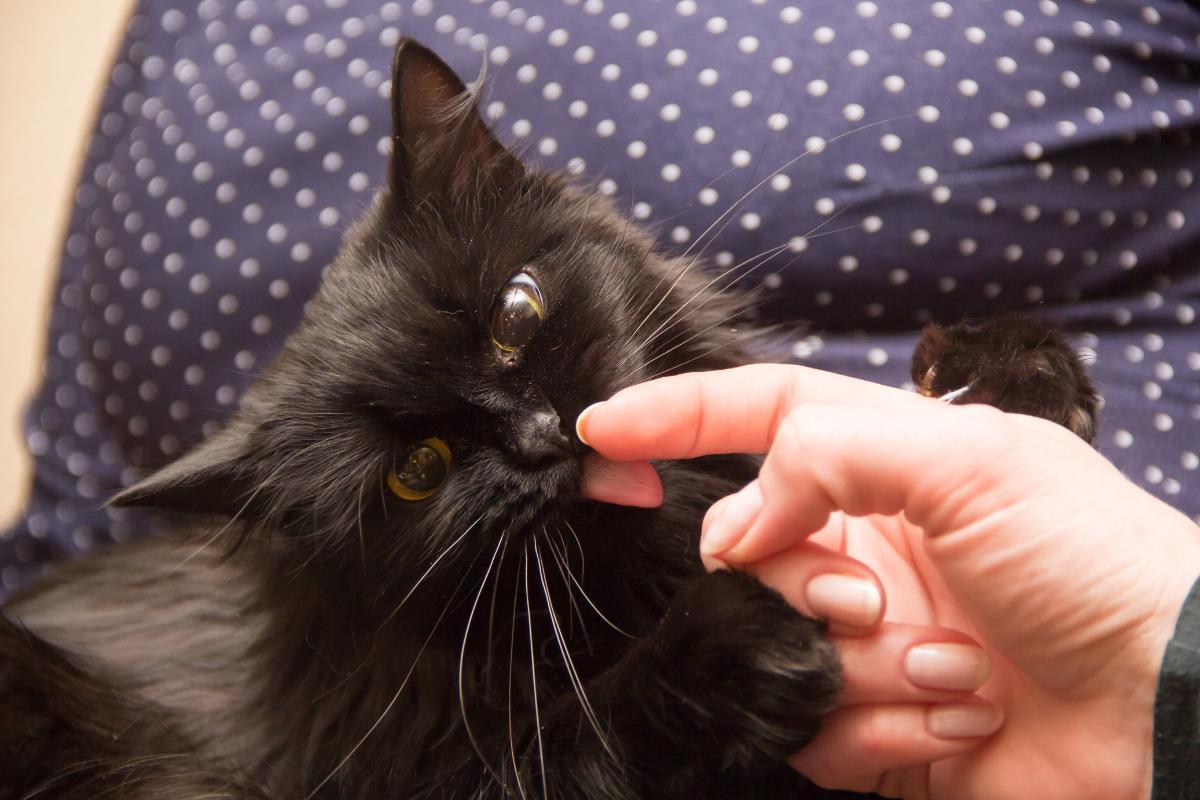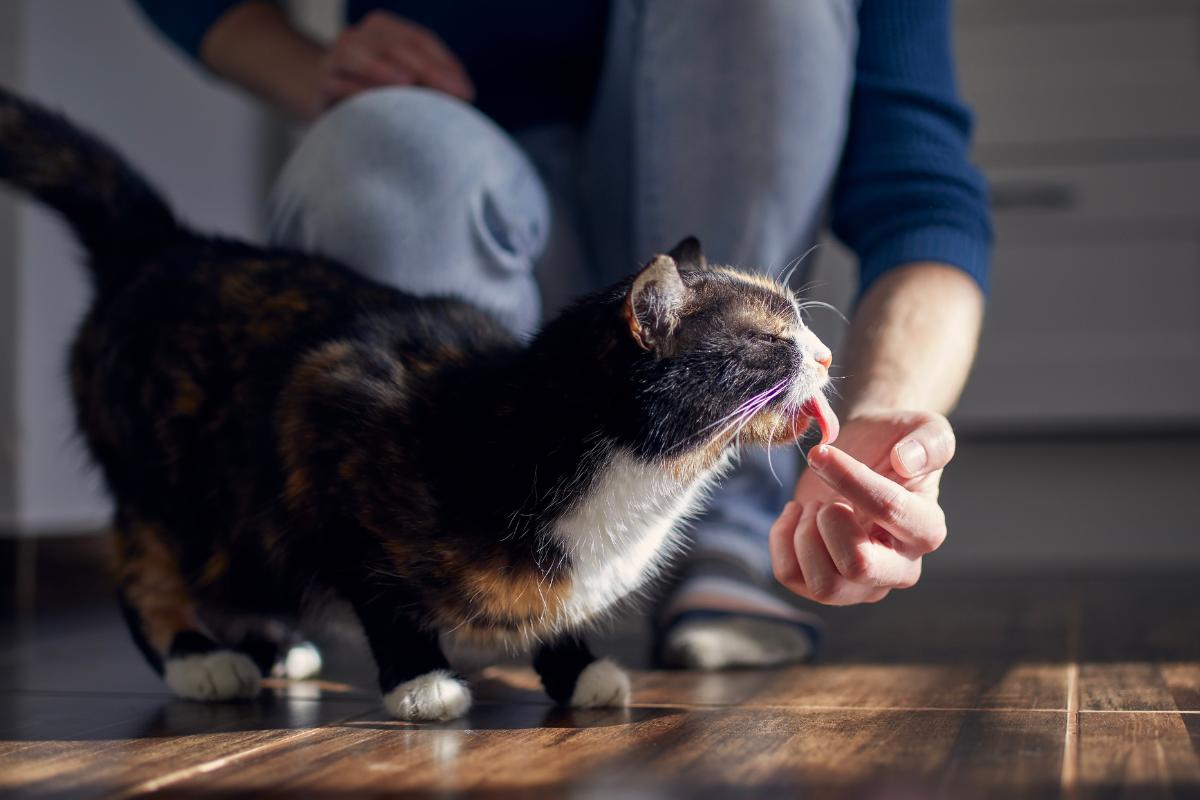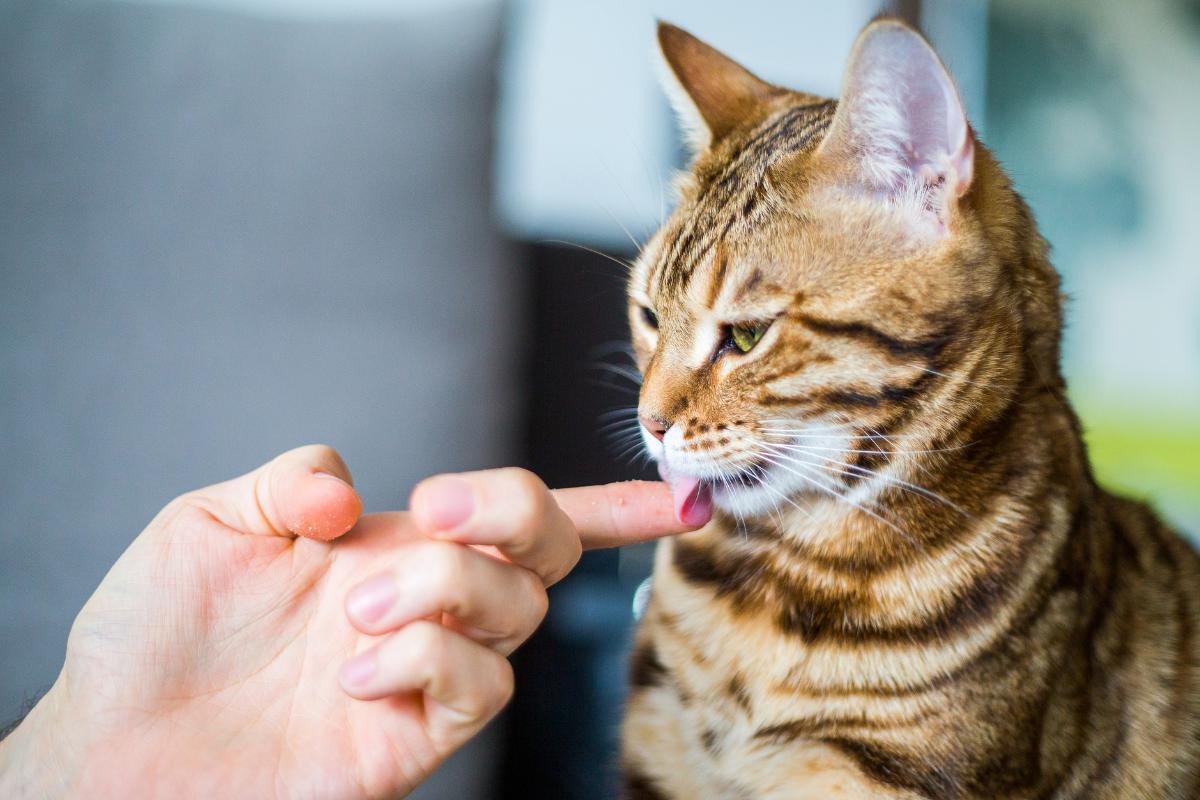Why Does My Cat Lick My Hand?

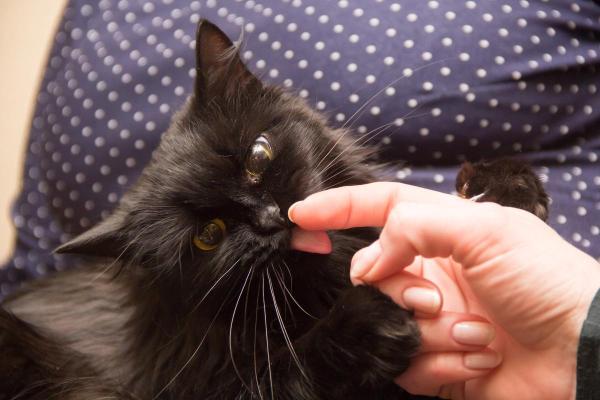

See files for Cats
Curiosity, hunger, stress, affection, and grooming are just a few of the reasons why a cat might lick your hands. Cats are very particular about their hygiene and use licking to keep their skin and fur clean. If you’ve ever wondered why a cat licks your hands, it’s often tied to their grooming habits, which also serve as a form of social interaction and communication in the feline world. However, if your cat licks your hands constantly, it could be a sign of stress or even a health issue.
In this AnimalWised article, we’ll explore all the reasons why your cat might be licking your hands and provide solutions for each situation.
Grooming behavior
While it might seem like a cat is trying to help with your personal hygiene by licking your hands, it's more about their natural grooming behavior and affection. Cats are meticulous about cleanliness, both for themselves and their surroundings, which includes you and other members of their household. Their tongue, with its rough texture, acts like a brush, designed to remove dirt and loose fur.
What to do?
If you’re already keeping up with your personal hygiene, there’s not much else you need to do to stop a cat from licking you. This behavior is completely natural and, as we'll discuss in the next section, it's a way for the cat to strengthen its bond with you.
Affection
When two or more cats share a home and get along well, you'll often see them licking each other calmly and naturally. This behavior helps them reinforce a shared scent and a sense of belonging, which allows them to identify and feel safe around one another.
Given that cats see humans as "supersized" versions of themselves (as if we were big cats), it’s natural for them to interact with us similarly to how they would with other cats. So, when your cat licks your face, hands, or even your hair, it’s a sign that they love you and consider you part of their social group—the closest thing to "family" in the feline world.
What to do?
If your cat licks you to show affection, you should feel happy and proud, as earning a cat’s trust isn’t always easy. However, remember that cats have many other ways of showing their love. So, if your cat doesn’t lick your hands, it doesn’t mean there’s a problem in your relationship.
Wondering how to know if your cat is showing affection? Discover the subtle signs of love that your feline might be giving you.
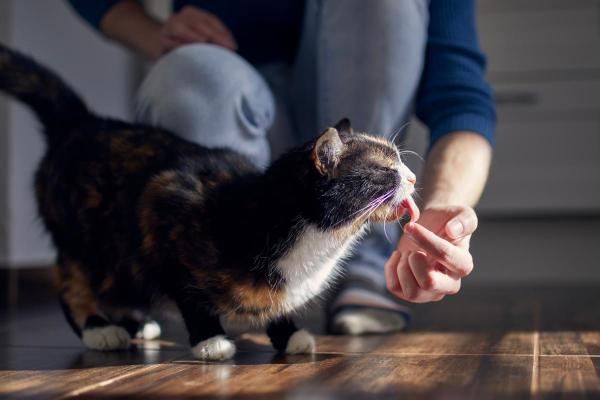
Curiosity
Another reason cats might lick their owners' hands is when they detect an intriguing scent. Cats have an incredibly keen sense of smell and taste, so if they pick up an interesting smell on your hands, they’ll often lick to gather more information.
For example, if you’ve been handling food, or if you’ve used a cream or ointment with a scent that appeals to cats, it’s natural for your cat to sniff and lick your hands. On the other hand, if your hands, skin, or clothing carry a scent that cats find unpleasant, your cat will likely avoid you or keep a distance.
What to do?
As long as the scent attracting your cat doesn’t come from foods or plants that are toxic to them, there’s no need to prevent your cat from licking your hands or skin. However, always wash your hands thoroughly after handling anything that could irritate your cat’s mucous membranes or cause poisoning.
Additionally, it’s crucial to know which foods are safe for cats to avoid gastrointestinal issues and other adverse reactions.
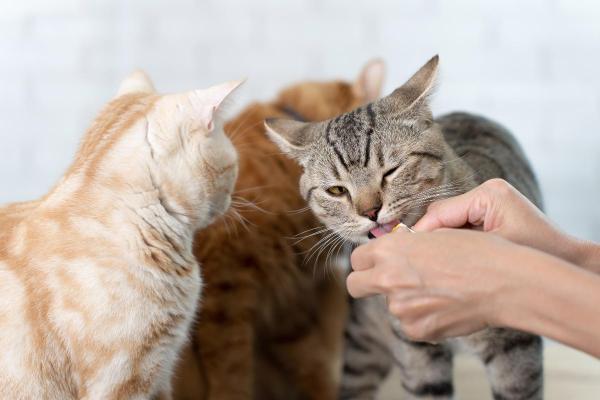
Hunger
Adult cats are usually quite particular about their feeding routine. They don't typically exhibit the gluttonous behavior often seen in dogs and prefer to eat small amounts of food several times a day.
However, if your cat finds their bowl empty when they're ready to eat, or if they don't like the food that's available, they may seek you out for help. During these times, your cat might lick your hands, meow persistently, or stare at you to get your attention. Sometimes, they might even lick your hands and then give you a gentle bite.
What to do?
For adult cats, it’s best to provide food on demand, meaning you should always have food available in their bowl. If you need to control the amount of food your cat eats daily, consider using a smart feeder or an automatic food dispenser.
However, if you notice that your cat seems constantly hungry, it could be a sign of:
- Poor quality food: your cat might not be getting enough nutrients.
- Intestinal parasites: parasites in the digestive tract can steal nutrients from the food your cat eats, leaving them undernourished even if they’re eating well.
- Metabolic disorders: conditions like hyperthyroidism or hypothyroidism in cats can increase hunger and disrupt normal eating and sleeping patterns.
In these cases, it’s important to consult a veterinarian for an accurate diagnosis and proper treatment. Additionally, it's a good idea to establish healthy eating habits from the time your cat arrives in your home, preferably starting when they’re young.
Curious about what your cat should be eating? Discover the pros and cons of different diets in our related guide.
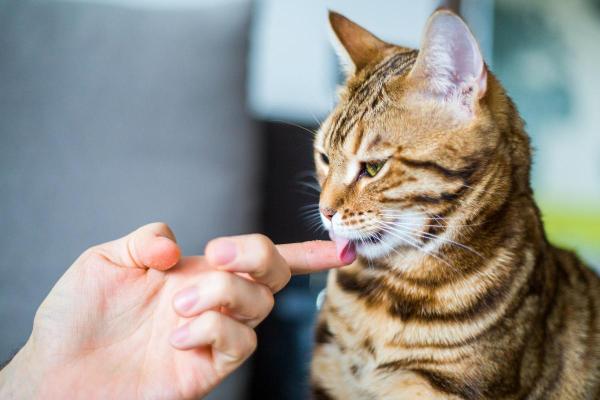
Boredom or stress
If your cat frequently licks your hands or constantly grooms itself, it might be a sign of boredom or stress. In such cases, an increase in natural behaviors like licking or grooming can be a way for the cat to relieve or release excess energy. This often happens when a cat has a sedentary, unstimulating routine and doesn't have enough positive outlets for its energy, exercise, and playtime.
What to do?
The best way to prevent boredom and stress in your cat is by enriching its environment. Provide a variety of toys, scratching posts, and sensory stimulation to keep your cat engaged.
It’s also important to dedicate some time each day to play with your cat. Focus on activities that mimic hunting and include puzzle games, as these stimulate both their body and mind.
However, stress in cats can have many other causes, such as sudden changes in their environment or underlying health issues.
So, if you notice a change in your cat's behavior, the first step is to consult a veterinarian to rule out any medical causes and determine if specific treatment is needed.
There’s more to your cat’s behavior than meets the eye. Uncover the subtle signs of stress that every cat owner should know.
If you want to read similar articles to Why Does My Cat Lick My Hand?, we recommend you visit our Facts about the animal kingdom category.





